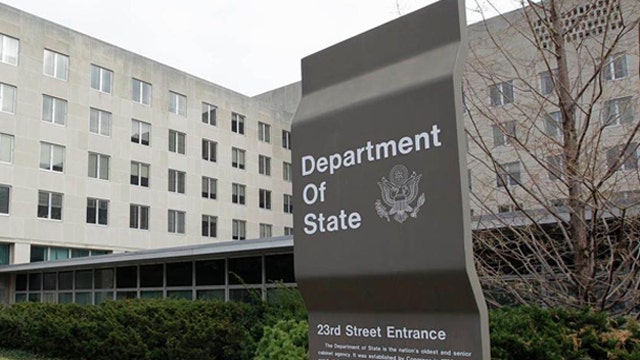IG: State Dept. poor at preserving emails for public record
A lot of government information could be getting lost. What does this new report mean for recovering information about Hillary Clinton?
WASHINGTON – The State Department's internal watchdog has found that many department employees are not preserving emails for the public record as required by the government. That could mean a substantial amount of lost government information.
The inspector general's office, in a report out Wednesday, said that in 2011, when Hillary Rodham Clinton was secretary of state, department employees wrote more than 1 billion emails but only marked 61,156 for the public record. There's no way to know from the figures how many should have been designated as public records. Even fewer were marked for public records, 41,749, in 2013, the year when she left the department.
Clinton is under scrutiny for using her personal email exclusively for official non-classified business during her tenure and for doing so with a private server. The new report does not address the use of personal email accounts, which the department discouraged employees from using in earlier guidance.
But the investigation found that employees had no central oversight of their record-keeping responsibilities with email, many did not know about the rules and some feared the consequences of their emails being searched and exposed.
"Department officials have noted that many emails that qualify as records are not being saved as record emails," the report says. "Some employees were under the impression that record emails were only a convenience; they had not understood that some emails were required to be saved as records."
The report found the laxity despite a 2009 upgrade in the system used to preserve emails as public records. It recommends better training, sharper guidelines for what should be made a public record and a department-wide review of how emails are used and kept.
Branches within the department varied widely in their preservation practices: The secretary's office designated only seven emails as public records in 2013; the office of diplomatic security did so with 409 emails.
Emails are required to be preserved for the public record if they deal with policy, actions by officials, historically relevant information or meet a variety of other benchmarks. Among the more than 1 billion emails sent in 2011, some were work emails that did not meet those standards, others were personal and still others should have been captured for the record but weren't. Emails that are not designated for the record may still become available for release later but become harder to find in the mountain of untapped government information.
Clinton turned over to the State Department some 30,000 emails from her personal account that she said were work-related, out of about 60,000 emails she had in the same account. Because the emails were sent to and from her personal server, there is no way to verify her assertion that they were, as she said, "within the scope of my personal privacy and that particularly of other people."
With Clinton's use of a private server, her emails are potentially even more out of reach than those that should have been designated for the record by her employees, but were not.





